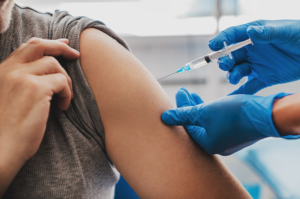What you should know about COVID-19 vaccine safety
Article Submitted
The U.S. Food & Drug Administration (FDA) has issued Emergency Use Authorization for COVID-19 vaccinations. This means they have determined that the benefits of the approved vaccines outweigh the risks in preventing COVID-19 infection. The CDC’s Advisory Committee on Immunization Practices (ACIP) also recommends COVID-19 vaccines for the  prevention of COVID-19.
prevention of COVID-19.
Vaccination has been shown to reduce the chance of getting sick from COVID-19, and it may help reduce the spread of the virus. This helps to conserve healthcare resources and a return to more normal day-to-day activities, including work and school. Wide acceptance and administration of the vaccines is also critical to group immunity which protects vulnerable groups who cannot get vaccinated because of health reasons.
Clinical trials of COVID-19 vaccines have included many thousands of people. Currently, there are two FDA-approved COVID-19 vaccines: Pfizer’s BioNTech vaccine is recommended for individuals 16 years of age and older. The Moderna vaccine is recommended for individuals 18 years of age and older. These two vaccines are still being studied in younger populations and additional guidance is expected. Approvals for additional vaccines are also expected in 2021.
It’s important to understand that some side-effects of the vaccine may occur. These may include fever, fatigue, headache, muscle pain, and pain at the injection site. People are encouraged to complete the vaccination series unless they develop a serious reaction, even if they have expected post-vaccination side-effects. Members should go back to the same place where they received their first dose to get their second one. This helps makes sure that both doses of the same vaccine are given.
The CDC encourages people to have an informed discussion with their healthcare provider to determine if vaccination is right for them.
Helpful tips and resources
- Use credible sources for COVID-19 vaccine information. The CDC website contains information and links to access reliable information.
- Bookmark chamber partner Anthem’s COVID-19 Resource Center and check back often for important updates and helpful tools and resources.
- Use Anthem’s COVID-19 Test Site Finder to find testing locations near home or work. Staying out of the ER whenever possible can minimize exposure to illness and help save money.








